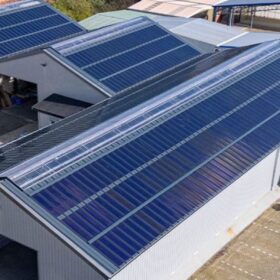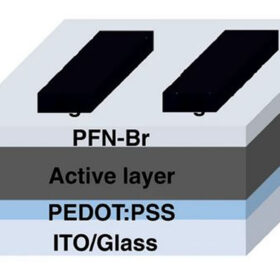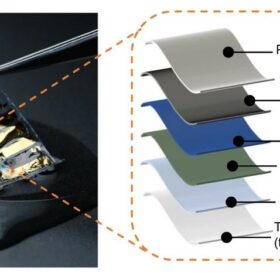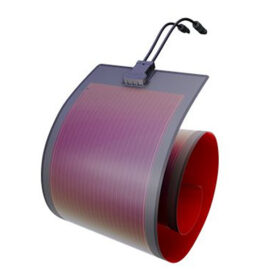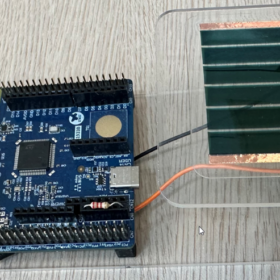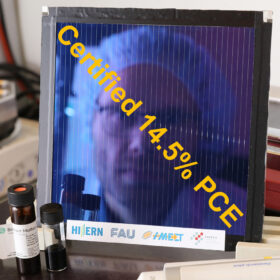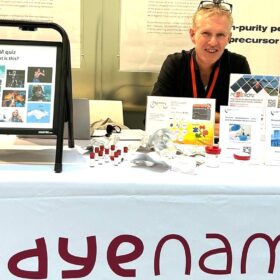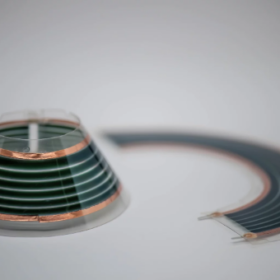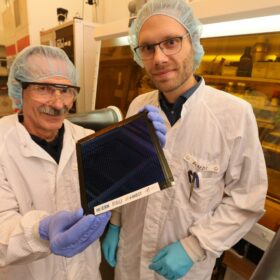Semitransparent organic cell achieves bifaciality factor of 99.1%
A team of researchers from two Chinese universities achieved a bifaciality factor of 99.1% with a semitransparent organic cell, the highest reported bifacial factor in such cells to date. The cell also achieved a power conversion efficiency of 12.5% and an average visible light transmittance of 22.9%.
Heliatek develops lightweight organic PV module for low load-bearing roofs, facades
German organic PV manufacturer Heliatek has announced a new series of lightweight modules. The Heliasol 436-2000-CFE-45-600V panels are IEC 61215 and IEC 61730 certified and have a 20-year lifetime warranty.
Organic solar cell based on trichlorobenzene achieves 19.31% efficiency
An international research team developed an organic solar cell based on a novel non-monotonic intermediated state manipulation strategy. The device reportedly showed non-radiative recombination losses while exhibiting remarkable power conversion efficiency.
Japanese researchers build 14.3%-efficient bendable, waterproof organic solar cell
Researchers from Japan’s Riken Center for Emergent Matter Science have fabricated an organic solar cell that has achieved waterproofness without reducing flexibility. At 3 micrometers thick, it is thought to be the first cell of its kind to survive a washing machine cycle and retain efficiency after multiple cycles.
TÜV Rheinland certifies organic PV product based on IEC 61215 standard
German certification body TÜV Rheinland has announced the certification of the first organic photovoltaic (OPV) product – an organic PV foil from Germany’s Heliatek – based on the IEC 61215 standard.
Dracula Technologies, STMicroelectronics unveil photovoltaic illuminometer
France’s indoor organic PV specialist Dracula Technologies and Swiss-headquartered semiconductor manufacturer STMicroelectronics demonstrated a battery-free illuminometer at the Embedded World trade fair in Germany last week.
Large area organic PV module achieves world record efficiency of 14.5%
The module has a size of 143 mm x 143 mm and an active area of 204.11 cm². The result was certified by the Fraunhofer Institute for Solar Energy Systems (Fraunhofer ISE).
Dyenamo expands materials offer for perovskite-silicon tandem solar cells
In response to its customers’ needs, Sweden’s Dyenamo has added several new perovskite product lines and increased production of materials for the full range of perovskite solar cell designs.
Dracula Technologies integrates organic solar cell into flexible storage device
Dracula Technologies has developed a new indoor technology for its organic photovoltaic (OPV) cells. It designed the tech to replace traditional batteries in connected devices.
German researchers claim record-breaking 14.46% efficiency for organic PV module
A team of scientists at Germany’s Friedrich-Alexander Universität Erlangen Nürnberg has set an efficiency record of 14.46% for an organic PV module. The performance was certified by Germany’s Fraunhofer Institue for Solar Energy’s PV calibration laboratory (CalLab).

